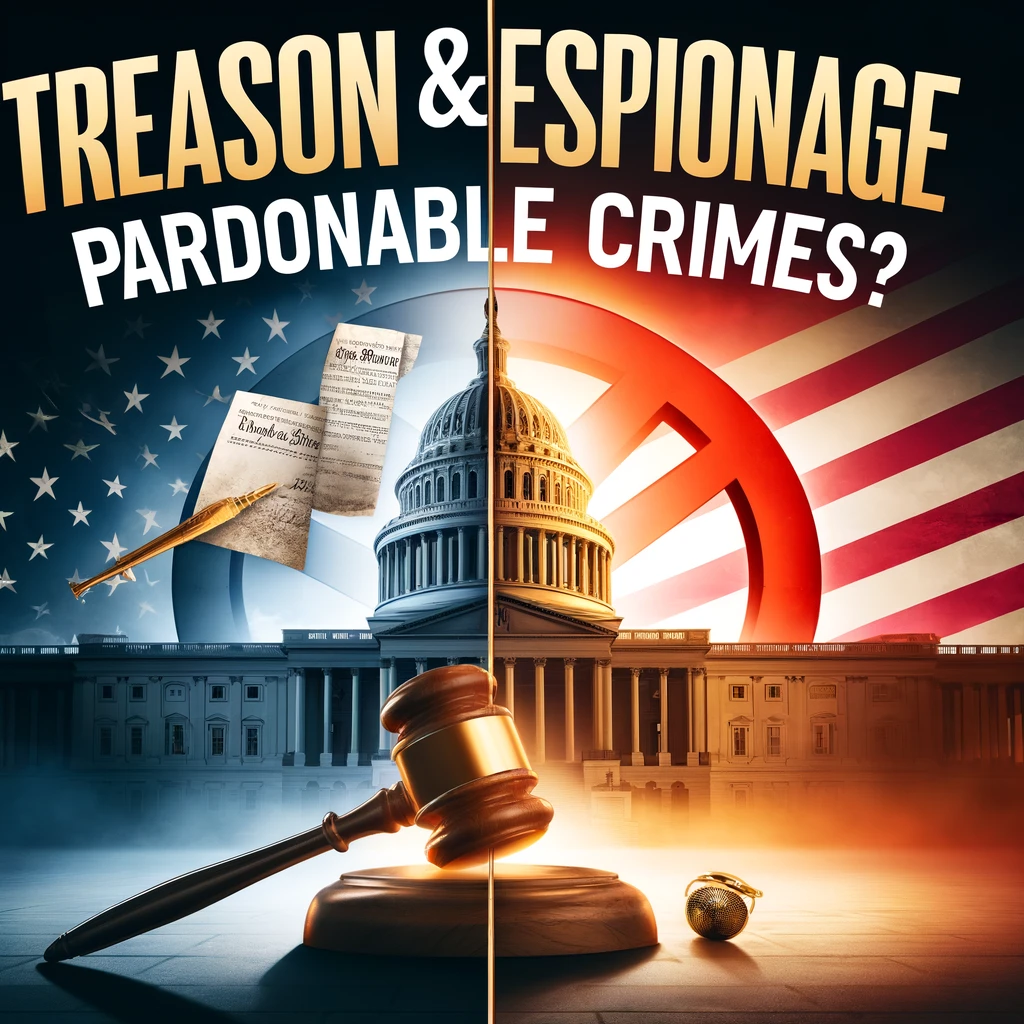Are Treason & Espionage Pardonable Crimes?

According to Westlaw, treason and espionage are pardonable crimes under certain conditions. Under federal law, the President of the United States has the power to grant reprieves and pardons for offenses against the United States, except in cases of impeachment (Malone v. Shyne, 937 So.2d 343 (2006)), (U.S. v. Thomasson, 4 Biss. 336 (1869)). This includes the power to pardon individuals convicted of treason and espionage, as these are offenses against the United States and are not excluded by the impeachment exception.
In Alabama, the Board of Pardons and Paroles has the authority to grant pardons in all cases except treason and impeachment, and cases where the death sentence has been imposed and not commuted (Ala. Code 1975 § 15-22-36). This means that treason is explicitly excluded from pardon by the Board of Pardons and Paroles in Alabama. Historically, in some states, the power to pardon treason has been reserved for the legislature rather than the executive.
For example, the Iowa Constitution of 1857 and the Wisconsin Constitution of 1848 both provided that treason could be pardoned by the legislature (Jamison v. Flanner, 116 Kan. 624 (1924)). In Louisiana, the governor has the power to grant pardons for offenses against the state, but this power does not extend to federal offenses, which include treason and espionage (Malone v. Shyne, 937 So.2d 343 (2006)).
In conclusion, while the President of the United States can pardon treason and espionage, state laws may vary, and in some states, treason may not be pardonable by the governor or the state’s Board of Pardons and Paroles.
